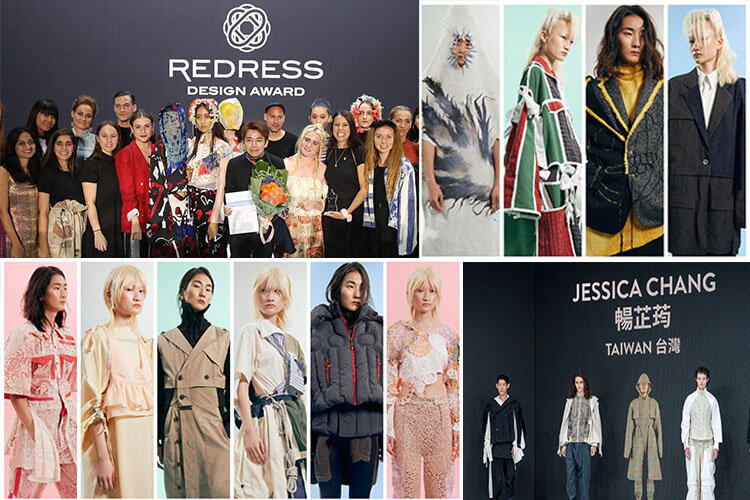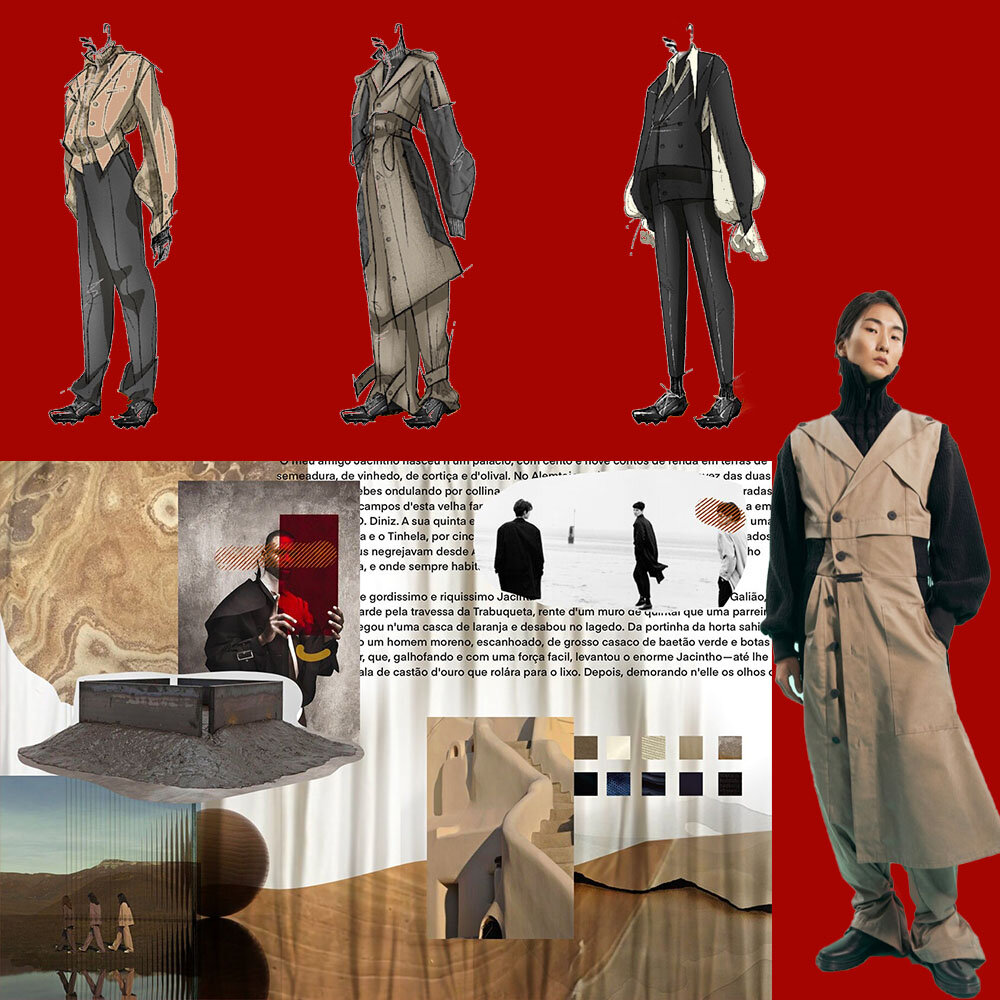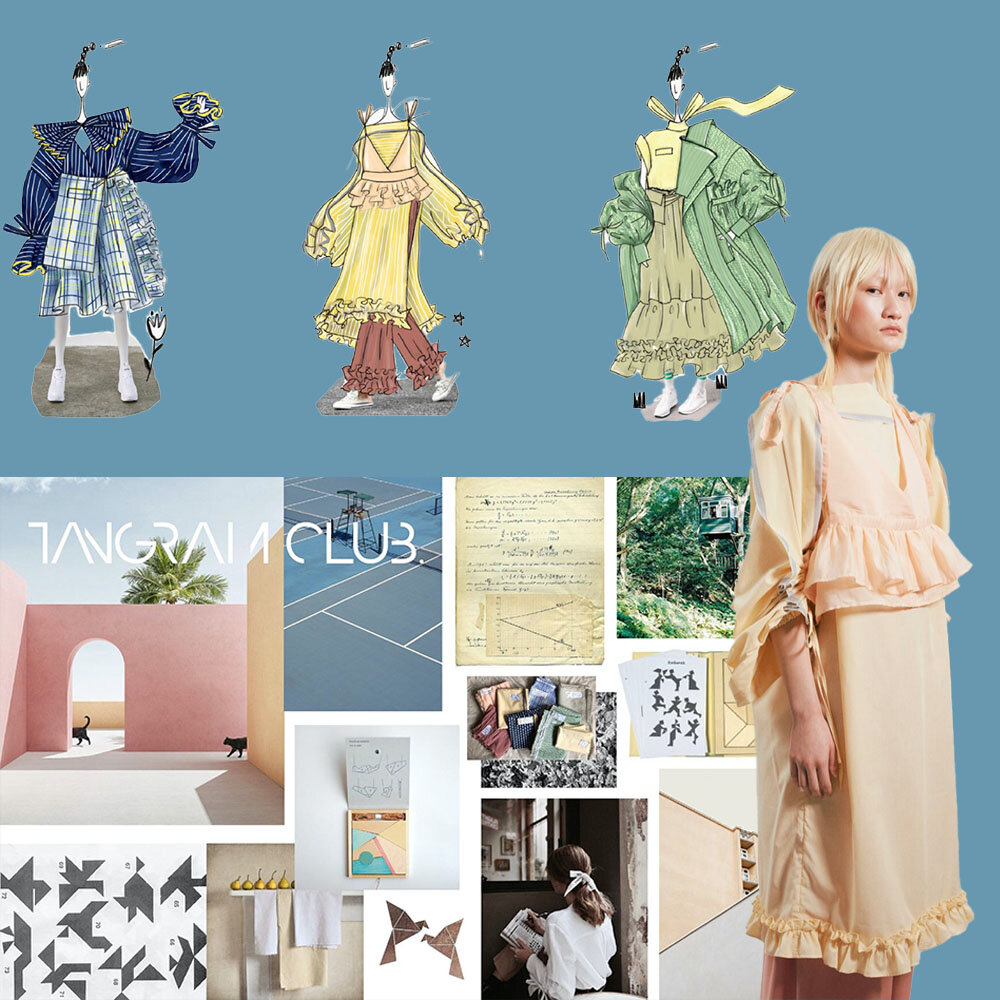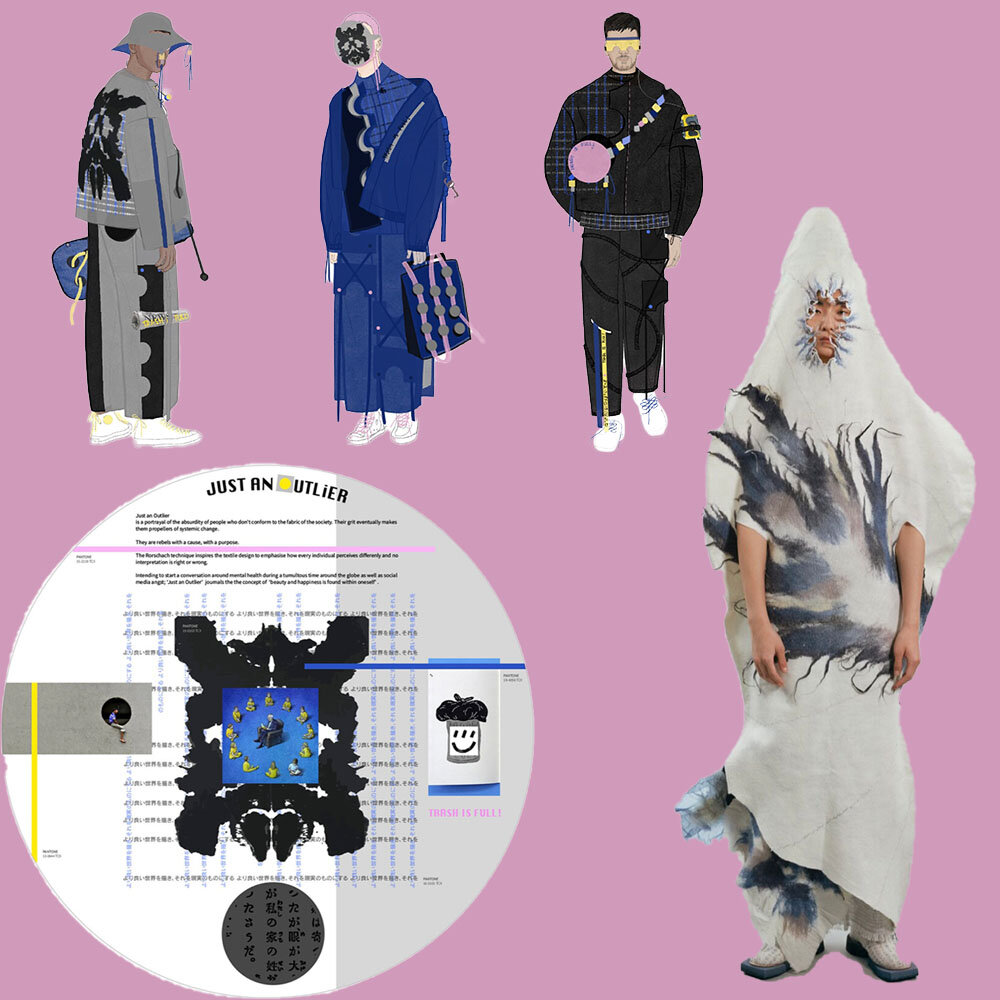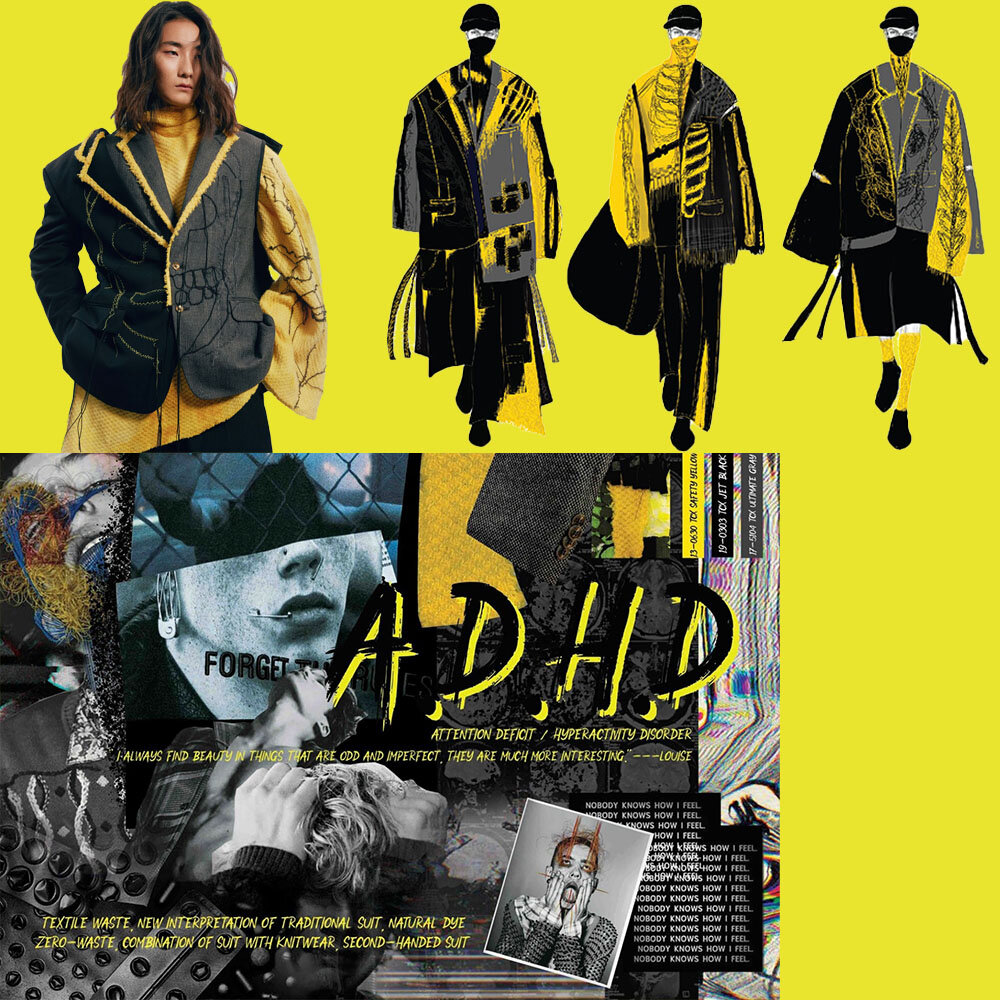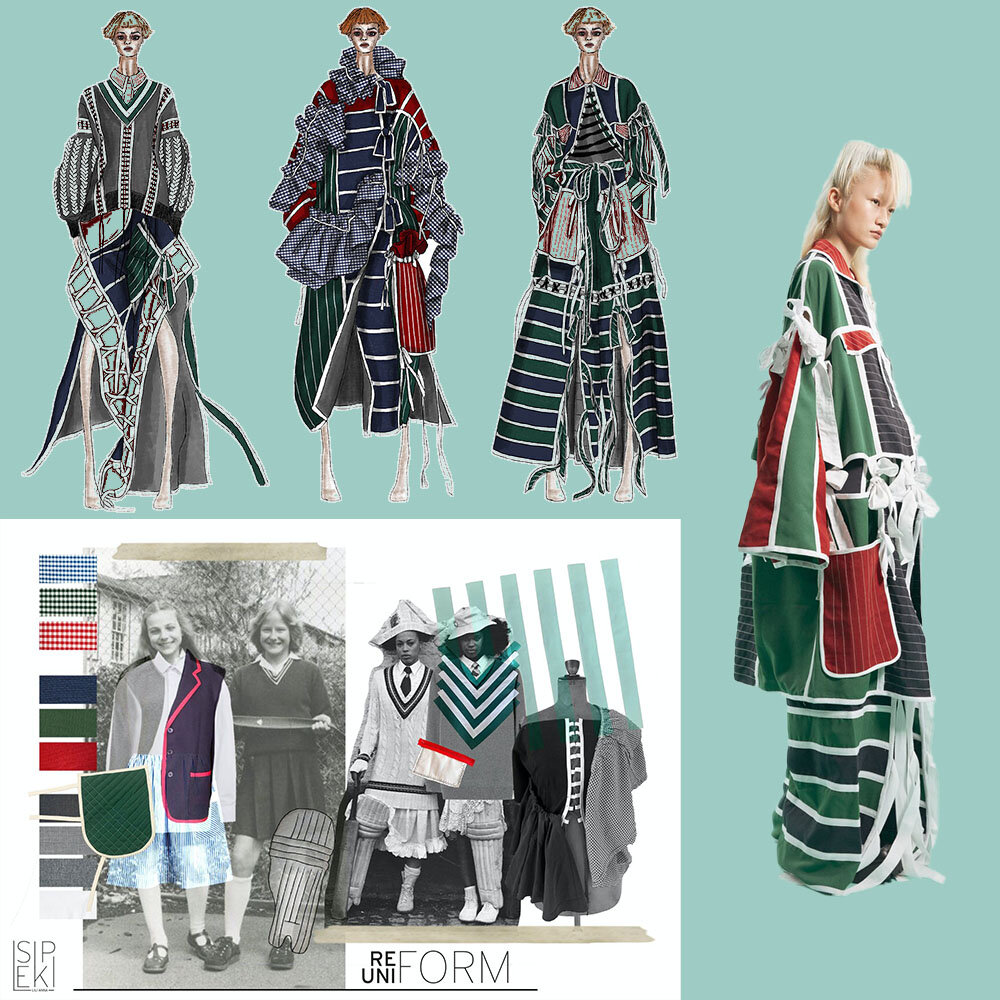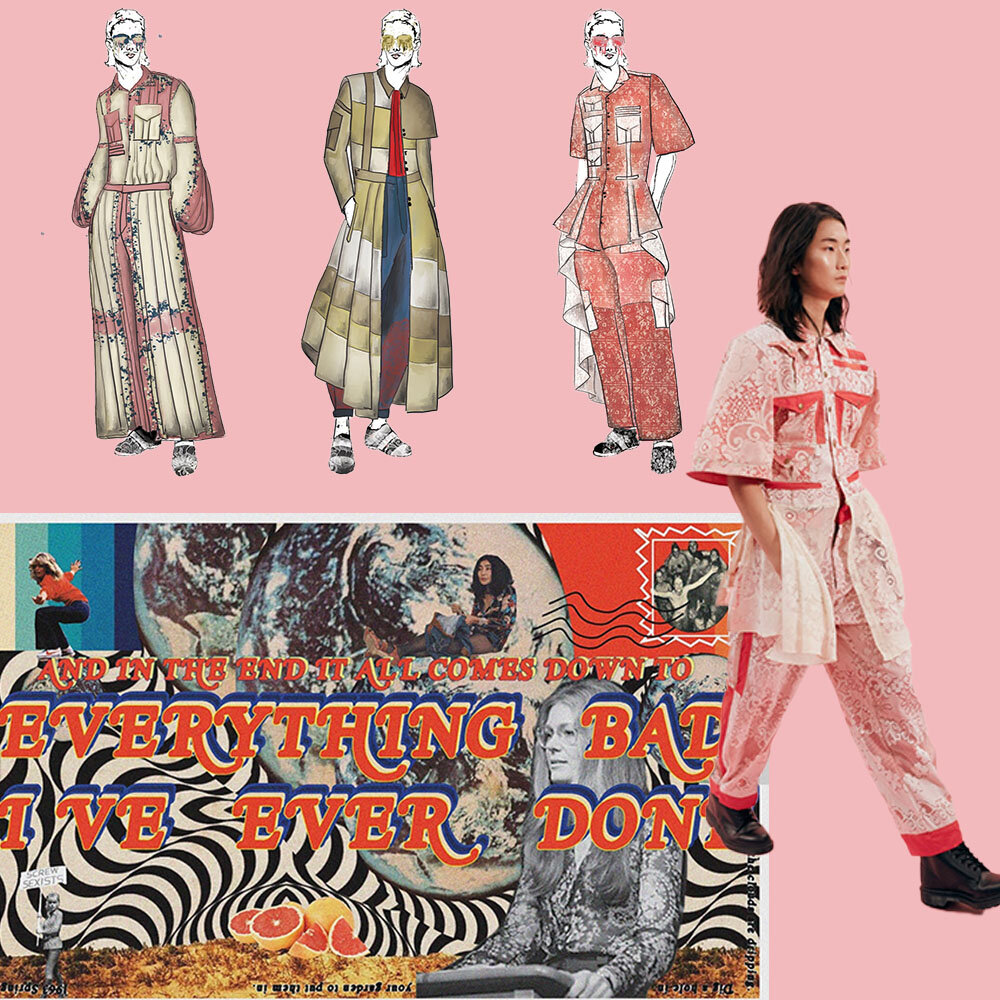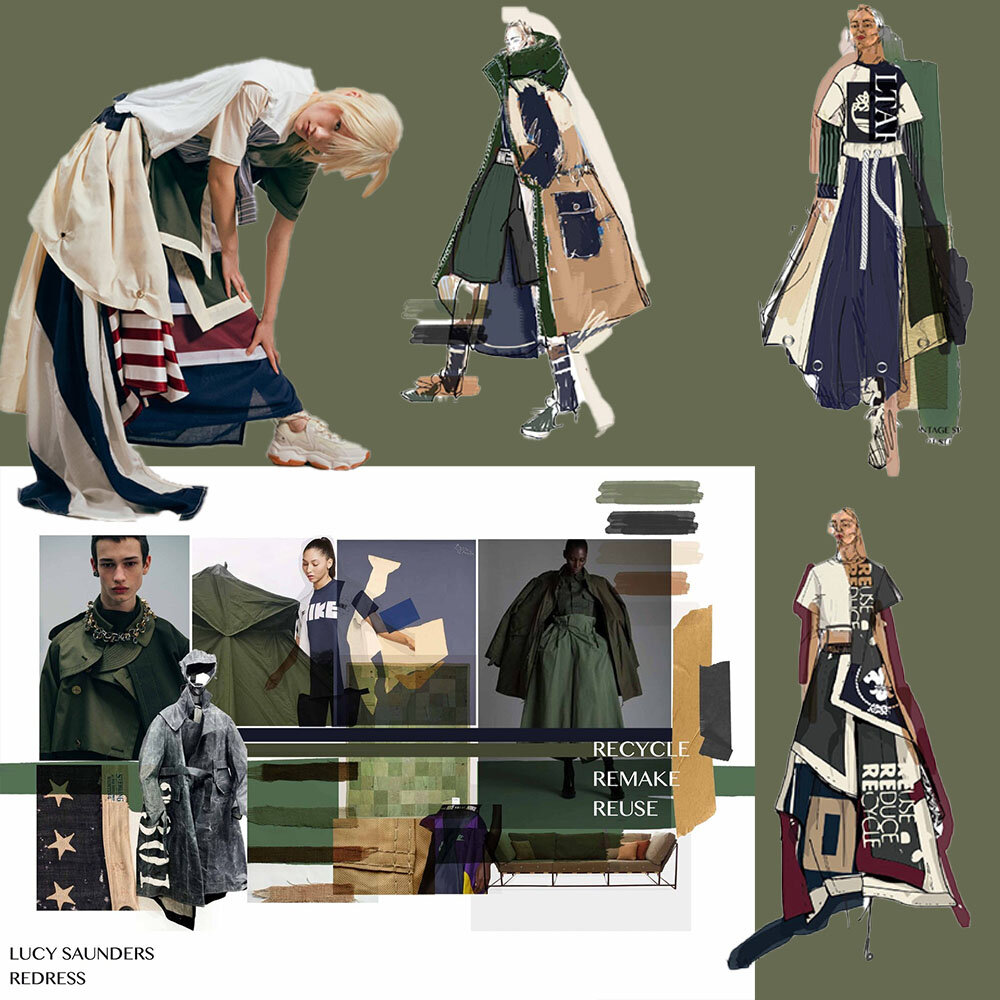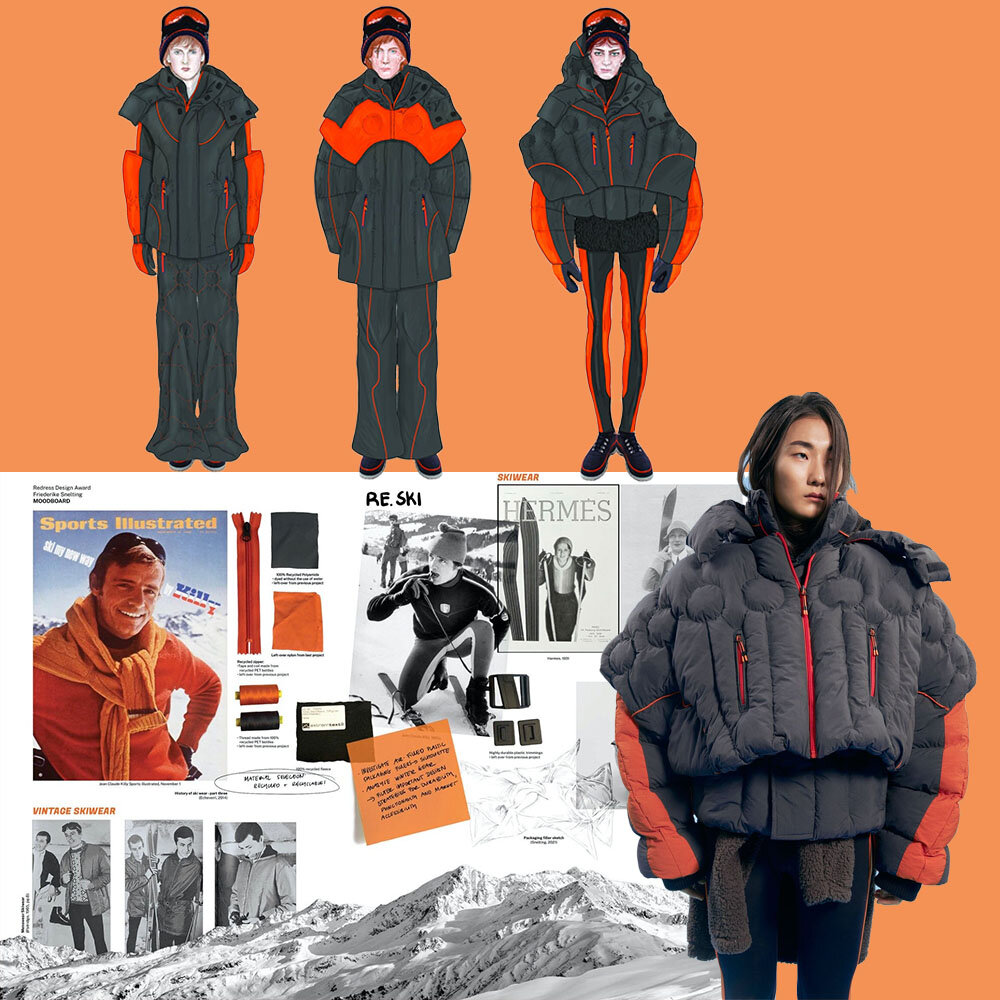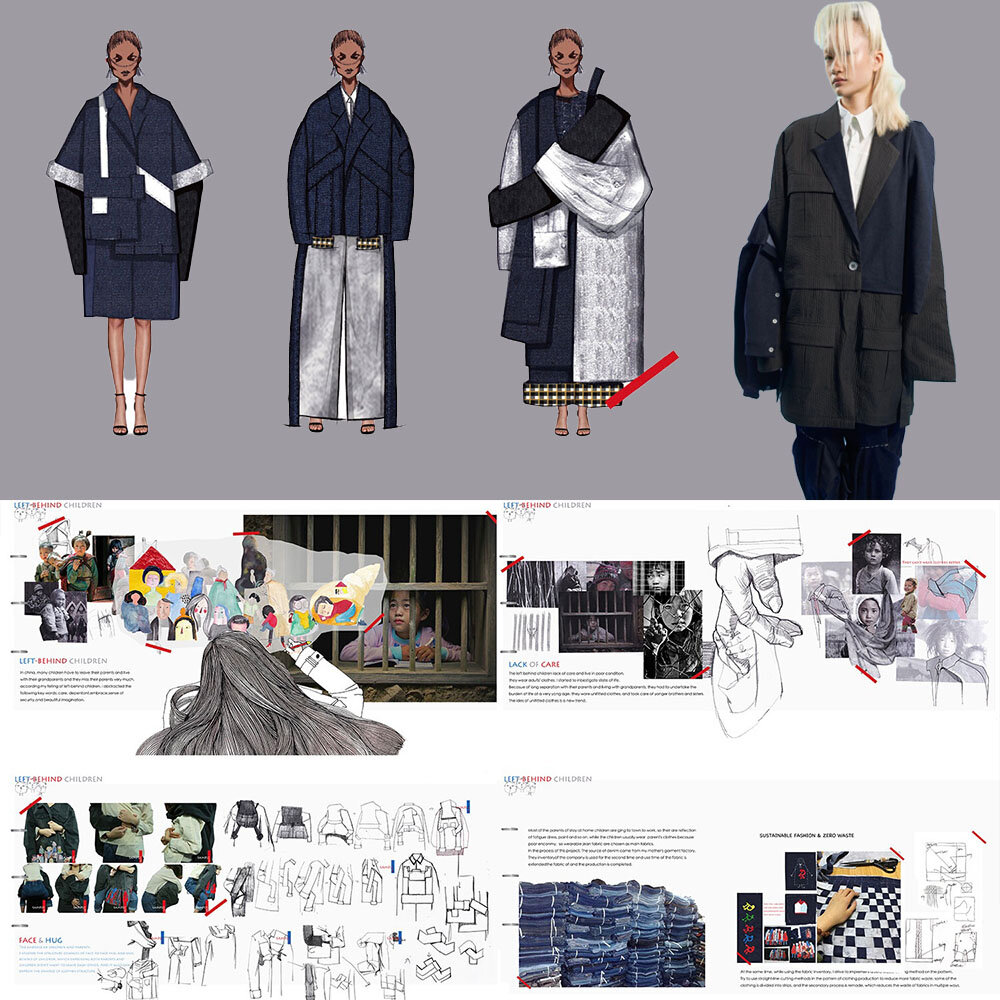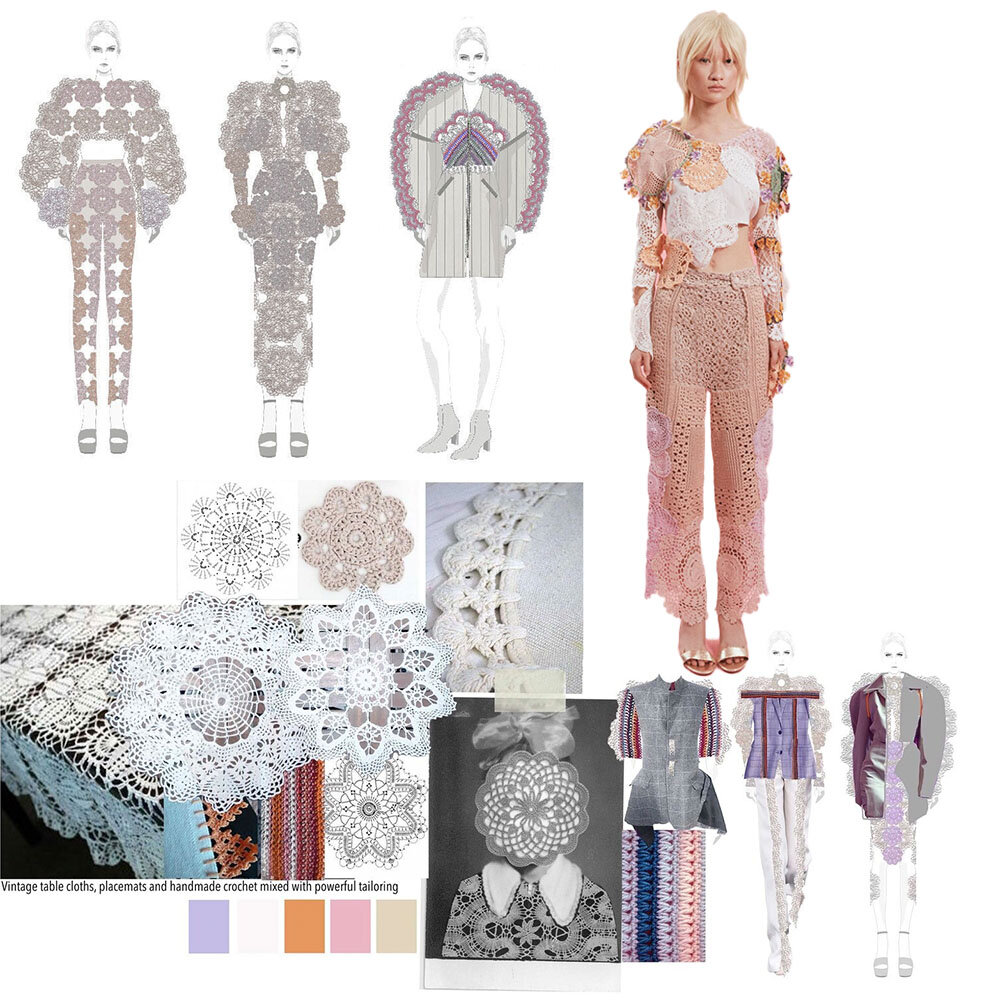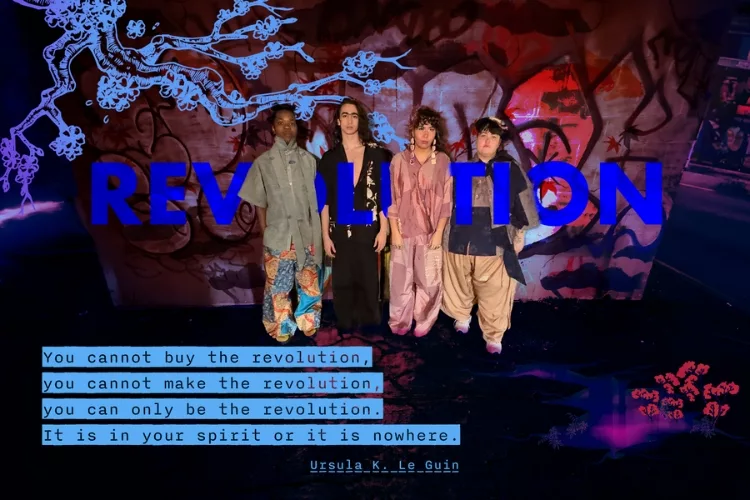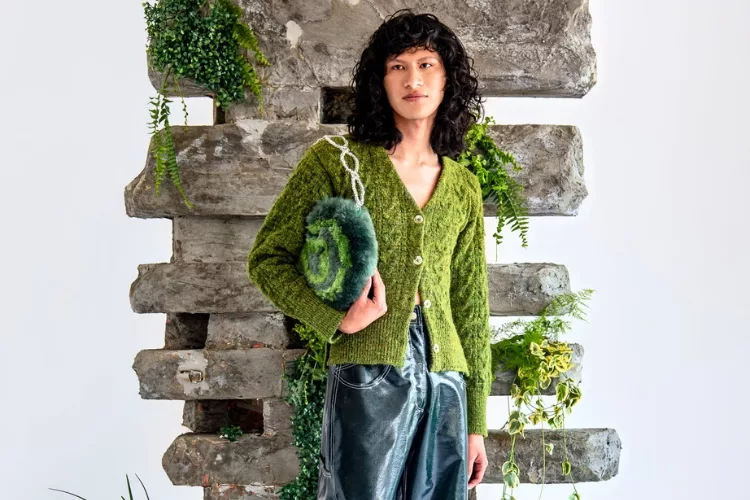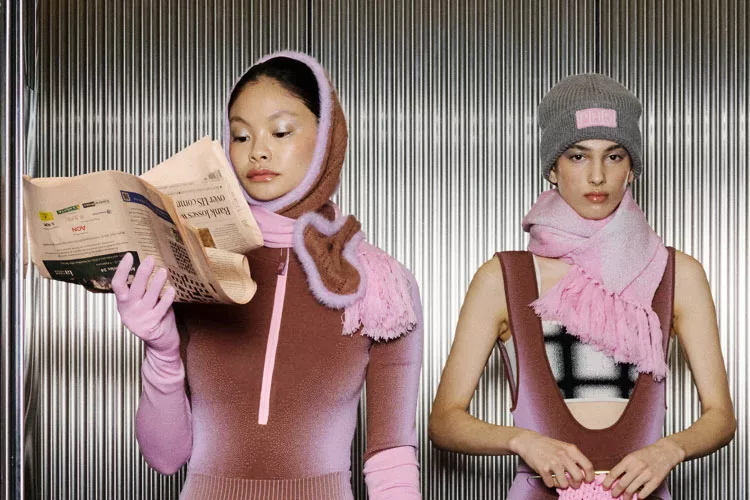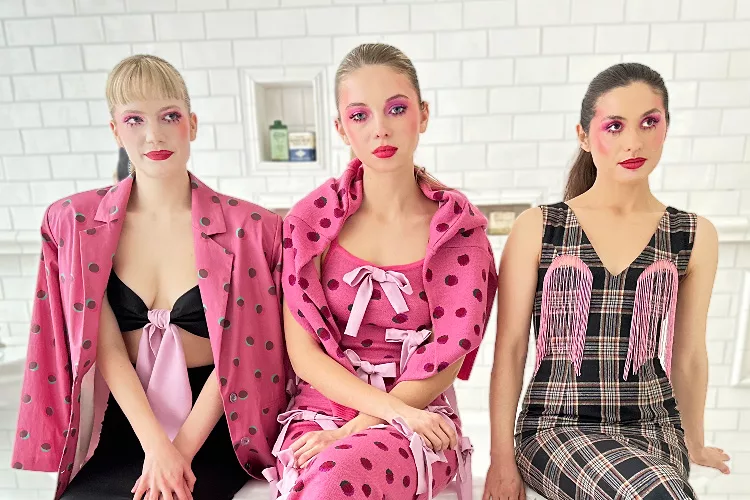Redress is one of our favorite organizations here at No Kill! It was the first environmental NGO focusing on the fashion industry, founded in all of Asia and has been established for over 10 years!
Their mission is to “prevent and transform textile waste, to catalyze a circular economy and reduce fashion’s water, chemical and carbon footprints”. Since their inception in 2007, the Redress team has worked to improve fashion production practices and stop the creation of textile waste and have also created systems and partnerships that highlight the value in existing “waste”.
The Redress Design Award is the largest sustainable fashion competition in the world. It works to drive the fashion industry away from its environmental destructive practices and towards a circular fashion system. The competition does this by putting the spotlight on sustainable and eco-friendly designers creating a unique platform for passionate change-makers in the fashion industry.
This year’s Redress Design Award was one of the best yet. The 2021 Grand Final Fashion Show occurred on September 11th, 2021, but don’t worry if you missed it –just click here to watch the video over Facebook!
The show featured work from 10 finalists who were chosen from hundreds of applicants based on their beautiful and sustainable waste reducing collections. Every garment in the show was made from repurposed textile waste and is packed with sustainable design techniques. These ten designers have been rewarded for their future thinking and No Kill, as well as Redress, applauds them on their talent and passion.
Here we’re sharing a little about all the finalists – but let’s start with the winners.
Jessica Chang
Jessica Chang is the Redress Design Award 2021 Prize Winner!
Jessica is currently developing her own fashion brand in her home country of Taiwan after graduating in Fashion Design from Parsons School of Design. Chang is a big believer in upcycling and reconstruction and views zero-waste design as challenging but rewarding.
Her collection ‘The Wall’ looks at the different ways that walls serve as protection and/or barriers. She explores a range of different walls, from those existing in nature to man-made architecture and emotional walls built to protect our own hearts. She uses upcycled surplus textiles and secondhand clothing to create high-end fashion. She even adds breathable window detailing in her garments to reduce the frequency of garment washing.
Ig: @jessicachangstudio
Jin Pei-Wen
Jin Pei-Wen is the Redress Design Award 2021 Runner-up Winner!
Jin Pei-Wen is a designer from Taiwan and is currently pursuing an MA in Fashion Design at Shih Chien University, Taiwan. She considers sustainability to be a necessity in every decision made, both in and outside of the fashion industry. She believes fashion designers have the “responsibility to make sure that not only the aesthetic works, but also the whole production process behind the garment has been well tracked and controlled”.
For her collection, Pei-Wen was inspired by tangram and the endless possible shapes it can make. She used this to create geometric zero-waste patterns for her ‘Tangram Up’ collection. The collection was upcycled from sample textile waste and it was designed with disassembly in mind for the garment’s end-of-life to extend the life of the textiles used. Especially impressive is that Jin Pei-Wen only used two tools to construct her entire collection: a cardboard semi-circle cutout and a ruler!
Ig: @apieceofgrassgrass
Tulika Ranjan
Indian designer, Tulika Ranjan, was granted the People’s Choice Award. She graduated in Fashion Design from the National Institute of Fashion Technology in New Delhi, India and is currently employed as a textile and accessories Designer at Mela Artisans. Mela Artisans blends traditional Indian handcrafting with contemporary design to create beautiful products and keep this type of Indian heritage alive. Tulika Ranjan prioritizes research in her creative process and even visited Panipat which is one of the largest importers of secondhand garments in the world.
As someone who has always felt like an outlier, Tulika Ranjan used her collection provoke conversation about mental health. Her collection ‘Just an Outlier’ aims to commemorate those who do not necessarily conform to the rest of society, those who feel compelled to becoming leaders of change in the contemporary world. Her garments are all made by hand using only natural textiles. Taking inspiration from mental health awareness, her designs are meant to resemble the Rorschach test, commonly known as the inkblot psychological test, with Tulika’s use of hand screen printing, inkblots and applique.
Ig: @ranjan_tulika
Psy Lau
Psy Lau, hailing from Taiwan was awarded the Hong Kong Best prize. Psy Lau uses her designs to search for new solutions desperately needed in the fashion industry that could potentially change contemporary consumption behaviors and limit environmental impacts! She told Redress that she enjoys finding the beauty in things that are considered odd or imperfect, something that is totally evident in her collection for the Redress Design Award 2021.
She explored her own mental health experience in her collection ‘A.D.H.D.’, taking inspiration from her own struggle with attention deficit and hyperactivity disorder. A textured contrasting palette of yellow and black symbolizes the conformity of hyperactivity in a world of seemingly ‘normal’ people to emphasize that some people can be ‘different’ but in the end we are all humans. In her collection, Psy Lau employs zero-waste, upcycling and reconstruction design techniques using a range of different textile waste. Her garments are constructed from secondhand clothing, knitwear and suits, and industry surplus, damaged textiles and yarns.
Ig: @psy.lau.official
The Rest of the Finalists
Lili Sipeki
Hailing from the United Kingdom, Lili Sipeki is a Redress Design Award 2021 finalist and a semi-finalist from the Redress Design Award competition in 2018. Her brand prioritizes garment longevity, sustainable product design, philosophical aesthetics, aesthetic nourishment and the durable subject-object bond contributing to long product life.
Her collection, entitled ‘REuniFORM’, was inspired by watching her younger siblings discard their school uniforms every year. Lili upcycled secondhand garments transforming them using reconstruction techniques like patchworking and quilting. Each garment is fashioned with laces instead of buttons and zippers; this allows the garments to be readjusted based on a wearer’s size. The garments also include detachable pockets, frills and intricate details that can increase their value and longevity.
Ig: @sipekililianna
Isabella Li Kostrzewa
Isabella Li Kostrzewa is a finalist of Redress Design Award 2021 as well as a semi-finalist of the 2020 cycle, and the American designer behind the brand ISABOKO. ISABOKO is a radically sustainable clothing brand using zero waste patterns to create clothing designers for gender free wear. Isabella Li Kostrzewa identifies as non-binary and therefore all their designs are gender free, taking inspiration from the idea of a life without gender constructs!
Their collection ‘Everything Bad I’ve Ever Done’ is a truly local collection; all the materials used in each garment are sourced within 30 miles of their hometown in rural Michigan! The collection is inspired by the late ‘60s and early ‘70s aesthetic and the second wave of feminism. The collection uses zero-waste pattern techniques on secondhand curtains, tablecloths and napkins! Isabella used boxy fluid silhouettes so that the garments allow for maximum wearer flexibility!
Lucy Saunders
Lucy Saunders is a sustainable designer hailing from the United Kingdom. Because sustainability is a large part of her values, she is extremely passionate about sustainable design. Saunders commonly uses zero-waste, upcycling and reconstruction techniques in her designs.
Her collection ‘ShowCase2021’ was a celebration of her childhood. She brings items from her younger years to life and forms a utility-inspired unisex collection. Saunders uses all different kinds of materials, from sailing flags to tents ad boat covers as fabric in this collection. She also included elements such as eyelets and rope to allow wearer flexibility.
Ig: @lucysaunders_design
Friederike Snelting
Friederike Snelting graduated in Fashion Design from University in Applied Science (HTW Berlin) and Fashion Design Technology, Menswear from London College of Fashion. As a designer she feels responsible for her designs’ impact on social and environmental aspects of life.
‘RE.SKI’, Friederike Snelting’s collection took her inspiration from the shape and structure of the inflating packaging fillers that resemble that used in ski apparel. Snelting used these inflating packaging fillers in a research project focused on packaging alternatives to reduce waste. Her collection features functional winter clothing from upcycled production surplus. She adds quilting, oversized fits and waistbands to allow for the longevity of garments and maximum wearer flexibility.
Ig: @f.snelting
Liu Feng
Liu Feng is from China and has a BA in Apparel Design (Womenswear) from the Beijing Institute if Fashion Technology and is currently enrolled in the London College of Fashion pursuing a MA in Pattern and Garment Technology. Liu Feng only discovered the world of sustainable design in graduate school but has already made amazing advances towards sustainability in her own work.
Her collectio, ‘Left-Behind Children’ has a unique theme: It is inspired by the stories of the young children in China whose parents are forced to abandon them in search of employment in major urban cities. Liu Feng uses different layering and structuring elements to represent the idea of a warm hug which is what Feng argues these children need so badly. Her family owns a garment factory in China, so Feng cleverly utilized left over textile waste from the factory to create her garments using upcycling and reconstruction design techniques.
Ig: @lynni_feng
Kristina Vyzaite
Kristina Vyzaite studied fashion design in Lithuania and completed her MA in Fashion from the Kingston School of Arts. Her passion for zero-waste design began back when Kristina was a young child and saw her mother rip up one old coat to create two for her and her sister during Lithuanian independence when materials were scarce. Kristina Vyzaite told Redress that this was her first exposure to sustainability and rational consumption, and ever since then it has always stuck with her! Her collection also draws inspiration from her mother and her home country.
Her collection ‘Nerimas’ translates from Lithuanian to English as anxiety. Kristina was inspired for her collection while back at home in Lithuania with her mother during the COVID pandemic. The inspiration behind ‘Nerimas’ comes from crochet placemats and their symbolism in Kristina’s memories as a ‘centerpiece’ in her family’s discussion and stories of Lithuania. Every garment in her collection is constructed using crocheted textiles like tablecloths and placemats and naturally hand-dyed deadstock fabrics! The ‘Nerimas’ collection is unique and Kristina Vyzaite wants it to educate consumers on her concept of ‘generational threads’: passing emotive materials to new generations.
Make sure to check out the Redress Design Award 2021 Fashion show on Facebook and show some love to these passionate and innovative designers!
–Carolina McCormick

